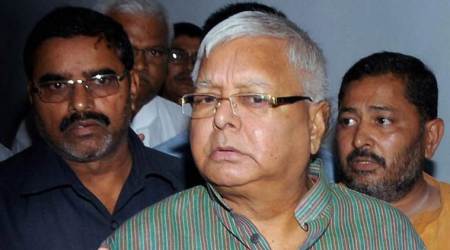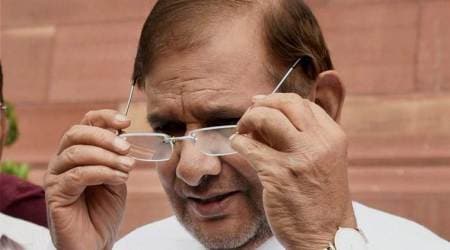 Nehru’s scepticism about religion guaranteed genuine secularism. There were no communal riots throughout his tenure as Prime Minister, and 11,000 in the 30 years following.
Nehru’s scepticism about religion guaranteed genuine secularism. There were no communal riots throughout his tenure as Prime Minister, and 11,000 in the 30 years following.
Sharad Yadav is a brilliant choice as the convenor of the next Mahagathbandhan (MGB). As he has himself traversed many of the parties which comprise the MGB during his career, he knows the twists and turns of their thought processes.
Even so, I doubt if the slogan of ‘Save Composite Culture’ will set hearts aflutter among the electorate, even if it delights Lutyens Delhi. If the MGB is to be a serious challenge to the incumbent, it will have to fashion an alternative strategy of growth and jobs. If it is to criticise the BJP for the farmers’ problems, it will have to offer something better. More debt cancellation won’t do as an answer.
The difficulty is that there is no difference of economic ideology between the BJP/NDA and the likely members of the MGB. There has been no drastic privatisation of PSUs under the NDA except Air India, which may not even be done by 2019. There is no more crony capitalism now than was there during the UPA. One of the early jibes that the Congress had about the government’s policies was that it was all their idea anyway which the BJP was copying. If all you can say is that the MGB will do the same but do it better, then would the voters flock to its banner?
Let me try and propose a radical policy package. It has the added advantage that it is Nehruvian.
Since there has been a lot of heartburn about ‘de-Nehruisation’ in recent days, it can provide a strong platform. People have forgotten that the first 10 years of Planning yielded a growth of 48 per cent in GDP. This rate was not matched till 25 years later when Rajiv Gandhi liberalised (not neo-liberalised!) the economy.
What was Nehru’s secret? Nehru did not nationalise two enterprises, both in the financial sector — the Imperial Bank of India (now State Bank) and Life Insurance Corporation. These have both been outstanding successes. No industrial or commercial enterprise was nationalised. The public sector initiated new developments but left the existing economy alone. There was no MGNREGA, no farmer debt problems, no scams or CAG criticisms.
It would be a great step if the MGB were to propose that it would return the PSU banks to the private sector as was the case in Nehru’s days. Indeed, all the nationalisation of Indira Gandhi can be reversed as well as the remnants of her permit-licence Raj. The growth rate of the Indian economy hit 3 to 3.5 per cent in the Sixties and Seventies and early Eighties. It was Indira who de-Nehruised first.
There can be more. Nehru’s scepticism about religion guaranteed genuine secularism. There were no communal riots throughout his tenure as Prime Minister, and 11,000 in the 30 years following. No gurus or swamis advised the Prime Minister, no astrologers darkened his doors, no ulema or bishops either. He could not push through the full version of Ambedkar’s Hindu code Bill but managed a substantial reform. Now in the light of the Supreme Court’s triple talaq decision, the MGB should promise Uniform Civil Code as its homage to Nehru and Dr Ambedkar.
The MGB can promise to amend the Preamble and remove the words ‘secular’ and ‘socialist’ and get us back
to Nehru.

